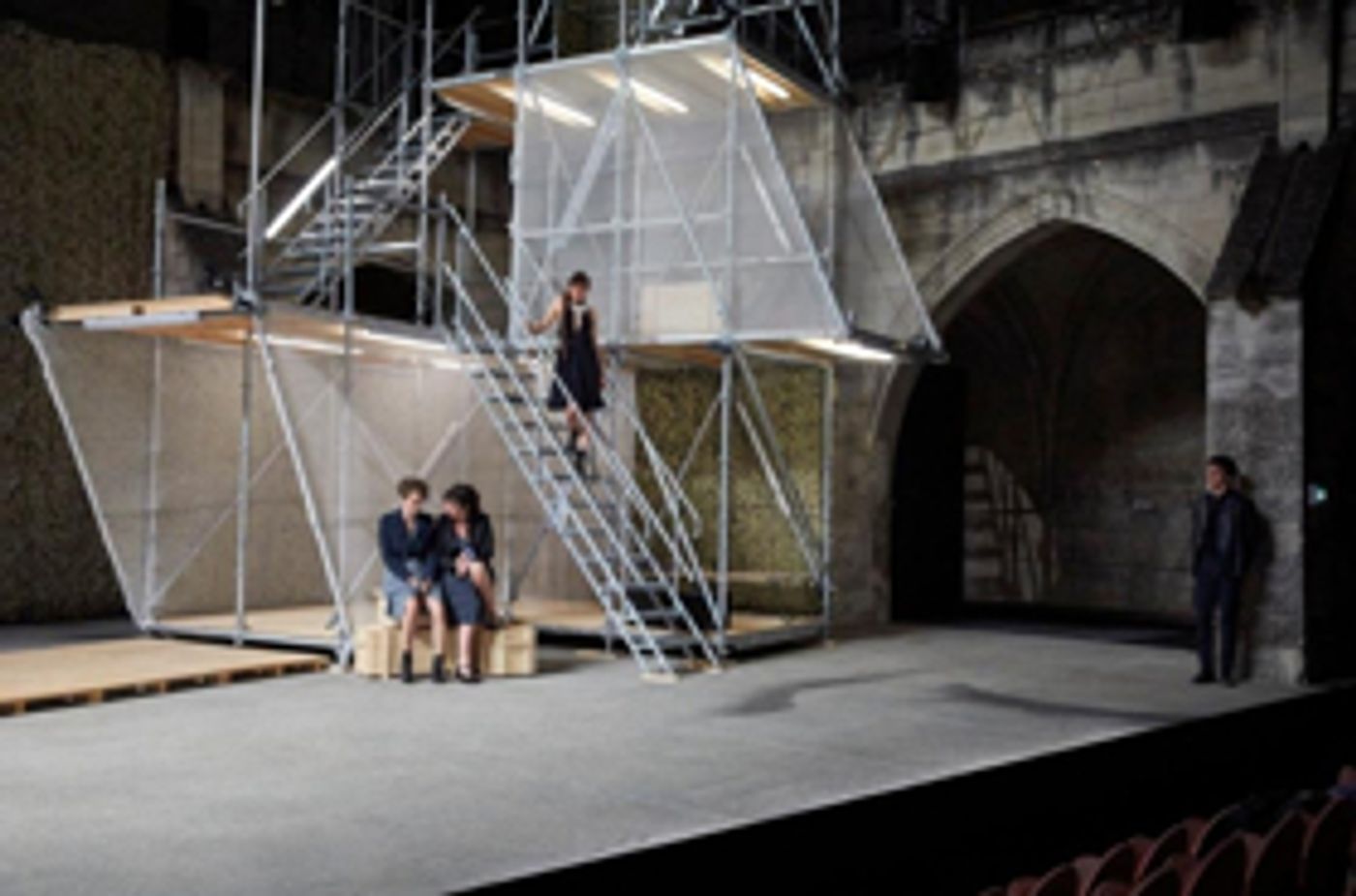Review: AVIGNON THEATRE FESTIVAL Presents RACINE'S IPHEGENIE Directed By CHLOE DABERT

Sometimes it takes one great performance to rescue an evening of theatre. Servane Ducorps, as the enraged and heartbroken Clytemnestra, does her level best in Racine's Iphigénie, now in The Avignon Theatre Festival's Cloître des Carmes. While it isn't quite enough to get the work over the finish line, her performance is a beacon in an otherwise self-pitying slog.
Pierre Nouvel's uniquely dull IKEA-Van Hove scenography perfectly sets the mood for the evening. On stage left stands an industrial tower of exposed wood, bars, and white sheets. Agamemnon enters, portrayed with a glib helplessness by Yann Boudaud. He needs fair winds to sail into the Trojan War. To his servant Arcas (Olivier Dupuy) he confesses that the oracle told him that he must sacrifice Iphigénie, his daughter. Ulysse pushes for this solution. However, all others involved seem opposed. Achille, portrayed by Sébastien Evano, is enraged. Ériphile (Victoire Du Bois), who was kidnapped by Achille from the island of Lesbos, is forlorn. All the while Iphigénie (Bénédice Cerutti) herself is nobly melancholic. These descriptive adjectives are given no variation throughout the duration of the performance. It is only Clytemnestra who seems to act from a place of human conviction. In fairness, Racine does stack the dramatic-deck in her favor. At the conclusion of the play instead of Iphigénie having to die, Ériphile's heat of the moment off-stage suicide appeases the gods.
I've been informed that as one should not go to opera for the drama, one should not view Racine as above all a shaper of dramatic action. The writing of Racine is first and foremost, fine rhetoric. Where in Shakespeare we are enthralled by his sheaths of stage invention and creativity, with Racine it is the dialectic residue that must satisfy. As a non-native French speaker, I am admittedly unqualified to render judgment on the actor's use his Alexandrine verse. All the same, the personifications of the characters are so drowning in self-pity that I imagine even the finest rhetorical finesse wouldn't be able to tread the water.
The design of Iphigénie is weighed down in repetitive reminders of just how soberly one should take the play. Lighting by Kelig Le Bars uses by now ubiquitous florescent tubes. Lucas Lelièvre's sound design fades in and out of resembling a soundscape and a computer malfunction. Victoire Dermagne, and Clémence Trétout's costume design is essentially House of Cards by way of White House - Black Market. Chloé Dabert's staging could have perhaps borne fruit. She clearly has an eye towards intimacy and grounding the classics of the past. I also don't doubt her conviction to the play's portrayal of sacrifice and the subjugation of women in states of war. When Clytemnestra has her daughter taken from her and she fights with all she has the stakes are high, the text is clear, and the audience is riveted. However, when staging the constricting demands of masculinity or romance, the text loses its connection to character. With nowhere to turn, the burden of such a stark scenography sucks dries all the energy from the stage, and the audience.
Reader Reviews
Videos


